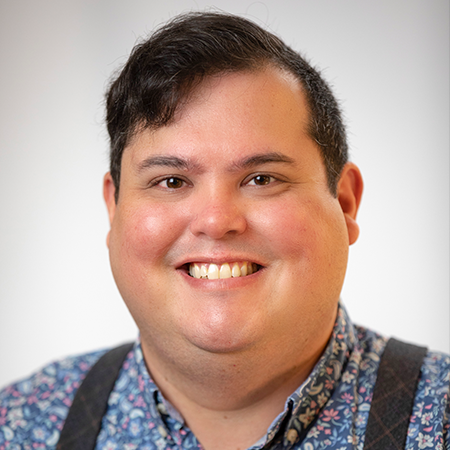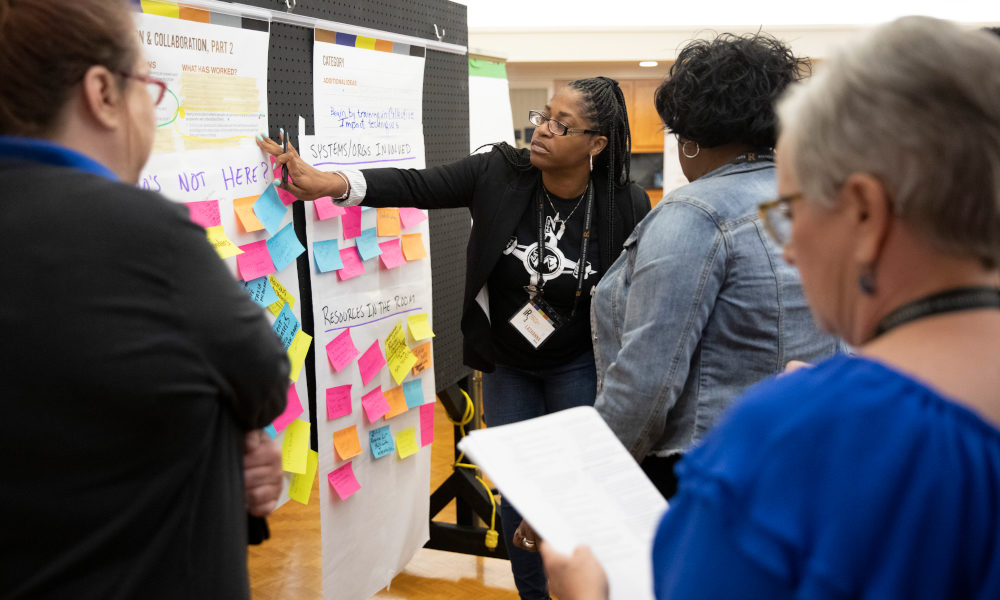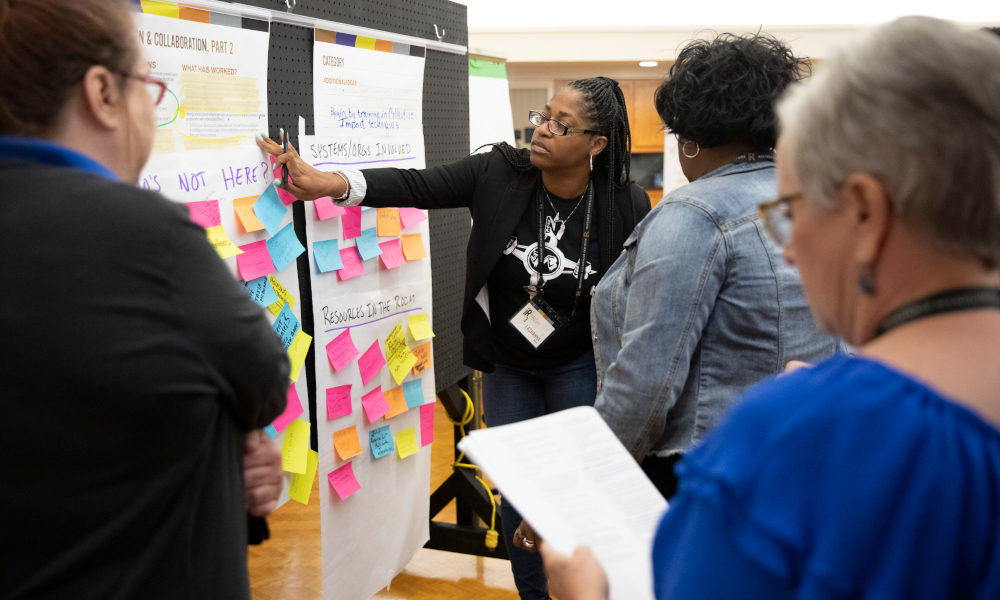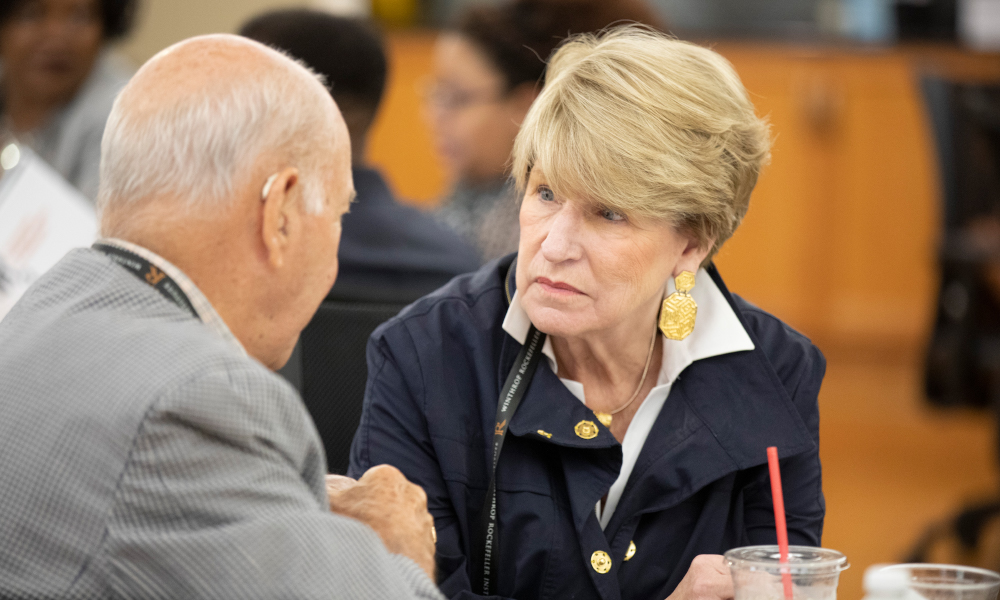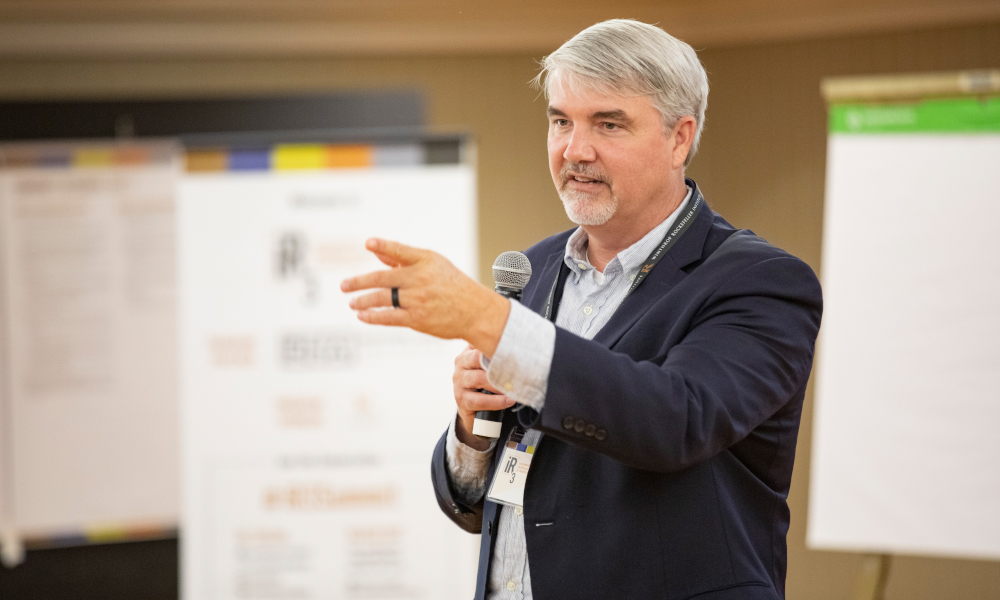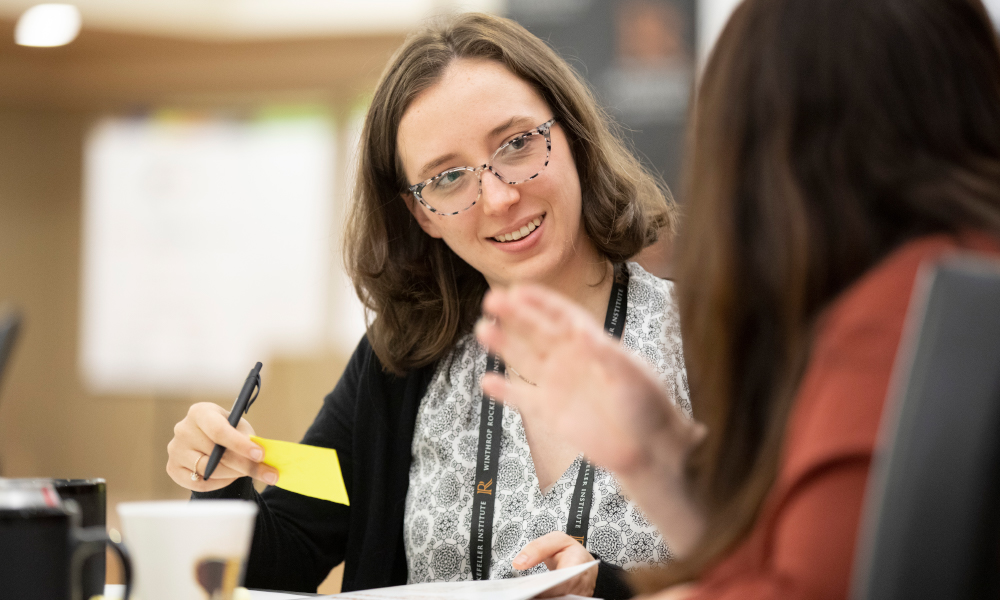Over the course of about 24 hours last June, 46 people came together and committed to making a positive impact in the lives of their fellow community members. While here on Petit Jean Mountain, they spoke about how their efforts were needed, how they had been called to do this work. We saw individual leaders finally get a chance to meet others fighting the same fights they were. We experienced all of this positive, hopeful energy focused on a group frequently maligned or overlooked: the formerly incarcerated.
While some might view anything to do with incarceration as a divisive and polarizing subject, those attending the Incarceration: Recidivism, Reentry and Reunification (iR3) meeting in June came searching for common ground. Finding that common ground was made easier by preliminary work done with the help of our program partner, Restore Hope Arkansas. Before any meetings were scheduled, invitations sent, or facilitations planned, we worked with Restore Hope to explore the roadblocks they kept encountering while they worked with returning citizens and other nonprofits.
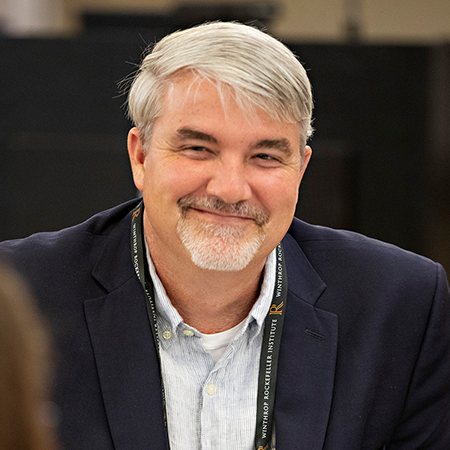
“If we can do the hard work now, then hopefully what we’re going to see is real transformation for a whole bunch of Arkansans.”
Paul Chapman, Executive Director of Restore Hope Arkansas
The leaders at Restore Hope recognized that if the same issues kept popping up for them and their community partners, maybe others in the reentry space were seeing them as well. To test that theory, Restore Hope and the Institute brainstormed diverse and varied groups related to reentry and recidivism, from the Arkansas Department of Corrections and the Judicial System to transitional housing, nonprofits, and the formerly incarcerated themselves. The resulting representatives took part in a series of focus groups. Starting with common issues seen by Restore Hope, the focus groups added and refined issues until we had a working list of challenges from the entire incarceration ecosystem.
That list of issues is what the iR3 attendees worked through during their time at the Institute. After consolidating the list of issues and selecting areas they felt they could make the most impact over the next one or two years, participants broke into three working groups that spent the months after the meeting working on plans in the following areas:
- Research and share best practices for data generation, consolidation, and sharing.
- Create a statewide and up-to-date asset map of available resources and market it for widespread use so that practitioners and their clients are more knowledgeable about resources available to them.
- Reach out to every county in Arkansas to promote intra-county collaboration and sharing of best practices, including existing systems and working program models.
- Reduce the length of probation and parole, according to the risk of reoffending, so that supervision effectively helps people reenter society.
- Identify counties with existing diversion and alternative sentencing programs and work to implement them in those counties without.
- Identify and overcome barriers to securing IDs, social security cards, licenses, and other documents when people are released from the system.
Produce a professional multimedia, multi-layered marketing campaign designed to reduce stigma and raise public awareness in Arkansas regarding people who have been convicted of felonies or who were formerly incarcerated.
These dedicated groups of nonprofit workers, former and current legislators, Arkansas Department of Corrections and Arkansas Community Corrections representatives, wardens and parole officers, returning citizens, former judges, health care professionals, and many others have taken time from their already busy lives to research these issues. Together, they have created plans of action that they believe will leave a positive impact on the space. Whether that is helping to alleviate undue challenges to reentry, creating a better understanding of the system as a whole, or just helping communities better understand their neighbors coming out of the corrections system, all actions address common challenges.
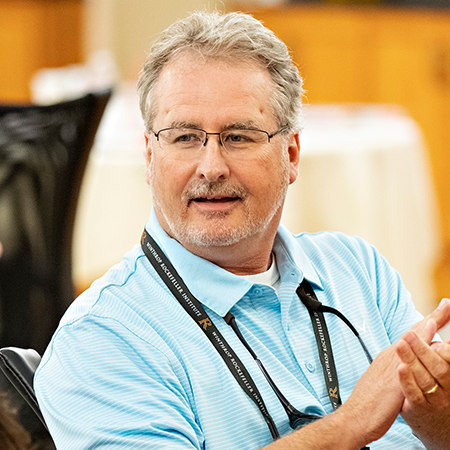
“With this process the Institute has created, our teams have so many great things to work with and I’m excited for new people to join us in September.”
Eddie Lee Herndon, President & CEO of the United Way of Forth Smith Area
These working groups will be back together this September for a hybrid conference to review and refine their current plans, recruit help from the larger iR3 membership, and set success goals and timelines. While there are many other issues to be looked at when considering the recidivism rate in Arkansas, addressing these challenges is a great start.
